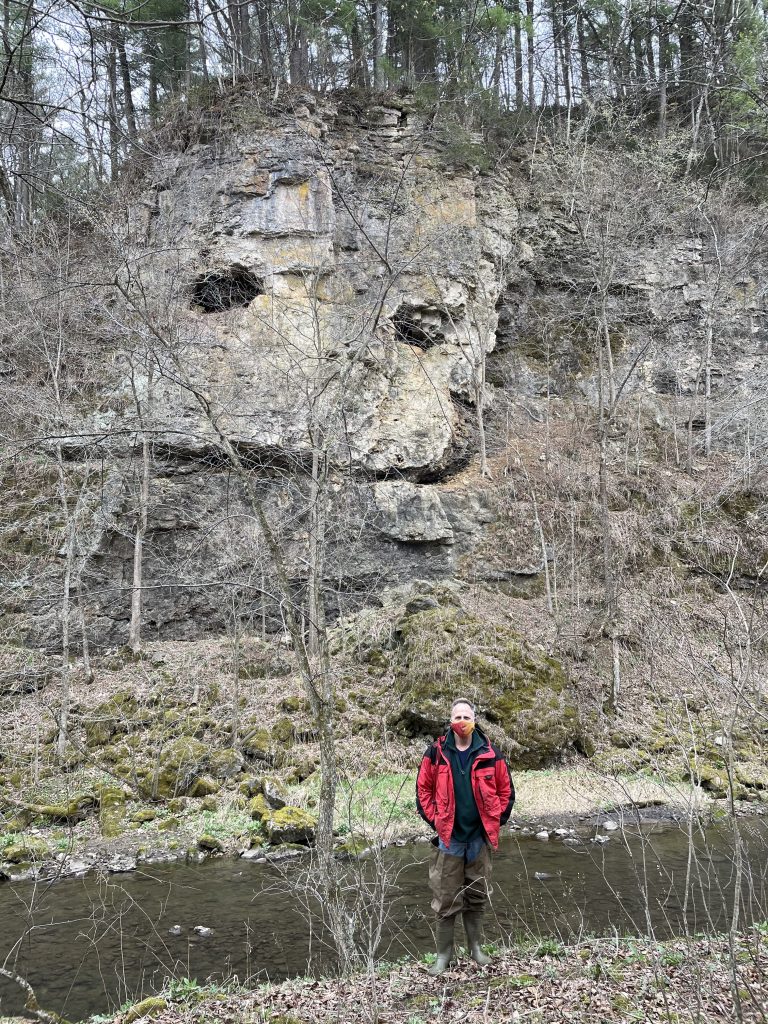The Dilemma of Groundwater Chemistry Data: Why No One-Stop Shopping?
by Tony Runkel, MGWA President

Hello again, MGWA members! This edition of the president’s letter finds the active president with considerably less anxiety than when he wrote the March letter. Nightmares of a Spring Conference beset by technical difficulties proved to be an inaccurate prediction of the actual event. Thanks to a fantastic support staff, especially past president Julia Steenberg, we managed to pull off a conference without the current president inadvertently messing anything up despite his inadequate technological skillset. We had about 250 virtual attendees at the meeting and received many compliments afterward. Thank you all for your dedication to MGWA, and continued interest in our conferences even when circumstances prevented meeting in person. For those of you who were unable to attend or could only attend parts of the conference, videos of all presentations are now available on the MGWA website.
Currently, we are planning for a live Fall Conference if capacity restrictions allow. Please hold open November 18 on your calendars. The specific content is yet to be fully determined, but as indicated in the April newsletter we are leaning towards groundwater (and groundwater-surface water interaction) across southeastern Minnesota and adjacent parts of Wisconsin and Iowa. With a very broad range of topics from high-tech groundwater science, to regulatory and management issues. Although geographically targeted largely to the “Driftless Area” (yes, I know, not truly “driftless” everywhere), the content will be applicable to anywhere that is largely “rural and sensitive”.
Beyond preparations for the Fall Conference, I’ve also been spending considerable time on another matter that should be of interest to many MGWA members. Groundwater chemistry. Specifically, groundwater chemistry databases. Here at the Minnesota Geological Survey (MGS) we are in the final stages of compiling nitrate results from groundwater samples collected over several decades from several southeastern Minnesota counties. This endeavor is part of an active project led by University of Minnesota’s John Nieber and sponsored by the Environmental and Natural Resources Trust Fund. Our compilation stands at about 58,000 nitrate values for samples from about 24,000 wells, springs, and stream baseflow sites. We will use this compilation in the context of geologic and hydrogeologic conditions (e.g. information from County Geologic Atlases) and groundwater models to better understand nitrate transport. A primary goal is to improve groundwater quality monitoring in this sensitive region. The usefulness of the data seems without question. For example, the pressing question of “Is the groundwater nitrate problem getting worse?” cannot be answered without a comprehensive nitrate dataset.
This undertaking is the third nitrate compilation by MGS over the past four decades, and it was a reminder of the difficulties and frustrations involved in such a process. It required synthesis of ten individual databases held by three state agencies and two counties. No two databases were alike, for example differing to varying degrees in locality information, field parameters, identification of sampling sources and methods, lab protocols, detection limits, privacy restrictions, and database formats. Duplicate results within and between the datasets were a significant issue. As a result, the resources necessary to produce our nitrate compilation were substantial. Beyond these difficulties was the frustration of knowing we have no dedicated resources to maintain this compilation in the years ahead. It will likely languish without updates, as did compilations MGS produced in past decades.
Thus the title of this letter… “The Dilemma of Groundwater Chemistry Data: Why No One-stop Shopping?” Wouldn’t it be awesome if Minnesota had a single data repository for groundwater chemistry? Something analogous to the much-admired County Well Index (aka Minnesota Well Index) for water well construction information? Assuming there is general agreement on the “awesomeness” of such a tool, what, then has prevented the development of a single groundwater chemistry repository for Minnesota? Perhaps I’ve already provided the answer in the preceding paragraph. Given the difficulties in compiling only nitrate data for one modest sized part of the state, imagine the task of producing and maintaining a much more comprehensive dataset. A repository with results for hundreds of analytes from hundreds of thousands(?) of samples collected statewide.
But a one-stop groundwater chemistry shop is certainly possible. For example, there is the Kentucky Groundwater Data Repository (https://www.uky.edu/KGS/water/research/gwreposit.htm) established and maintained by its state geological survey. The repository archives and disseminates groundwater data collected by state agencies, other organizations, and independent researchers. The database currently contains millions of results for over 500 analytes measured in samples from over 90,000 water wells and 5000 springs. Establishing this repository required interagency agreement it was needed, as well as a 1990 mandate from the Kentucky legislature.
I do recognize that no single entity in Minnesota currently has the resources, nor the mandated responsibility to create a statewide comprehensive groundwater chemistry data repository. The simple suggestion I’m making here is that perhaps this is something we should be proactively striving for. In the interest of full transparency, this suggestion is coming from someone who is a user of groundwater chemistry datasets, but not a builder. A person who can barely navigate an excel file. But I’m hoping this possibly naïve suggestion could stimulate some discussion. And perhaps move us forward towards development of a Minnesota Groundwater Data Repository. Feel free to provide your opinions, whether they be in the form of bouquets or brickbats.
MGWA is committed to developing a just, equitable, and inclusive groundwater community. Click on the button below to read MGWA’s full diversity statement.